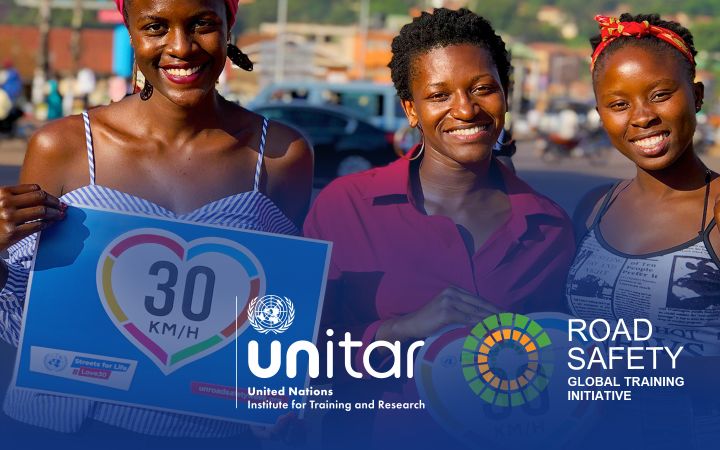Since its inception in 2017, UNITAR’s Road Safety Global Training Initiative (RS GTI), has focused its efforts on contributing to addressing the global crisis of road traffic injuries, which cause over 1.19 million deaths and 50 million injuries annually and disproportionately impact younger populations, especially in low- and middle-income countries.
Improving road safety includes, amongst others, adopting and enforcing laws to tackle risk factors associated with road traffic injuries. Risk factors include drinking and driving, speeding, distracted driving, the failure to use helmets, seat belts and child restraints properly. At the same time, law enforcement has been proven to be more effective when accompanied by effective educational and communication campaigns and strategies aimed at changing road users’ behaviour.
Where there is behaviour, there is a social norm. Understanding how behavioural science and social norms serve as powerful influences on individual attitudes and behaviours is crucial for effective policy interventions.
A social norm is a perception of what others do (what is normal) and what is expected of what others do within the group (what is appropriate). They act as rules that define acceptable, appropriate, and obligatory actions in a given group or society. Furthermore, they can influence behaviour despite conflicting individual opinions. Social norms can function like actual laws and violators of social norms are socially sanctioned.
Through the lens of social norms theory and applied to the road safety field, the RS GTI designed the online Toolkit “Social Norms Aimed at Improving Road Safety: Designing Effective Behaviour Change Campaigns”, which has also served to deliver face-to-face training workshops for government authorities and those responsible for road safety programmes.
The online toolkit aims to provide users with:
- An introduction to social norms and their role in creating new and/or perpetuating beneficial norms affecting road safety, as well as in eliminating harmful ones.
- Examples of interventions such as road safety campaigns that seek to alter social norms in support of road safety.
- Guide on how to design effective communication campaigns aimed at changing road users’ behaviours.
The Toolkit is structured to provide practical knowledge through three focused modules to increase understanding of how to effectively incorporate social norms into road safety strategies.
Furthermore, the Road Safety Global Training Initiative incorporates behavioural science and a social norms approach in its educational and public awareness activities to promote positive attitudinal changes and reduce risky behaviours that cause road traffic crashes.


